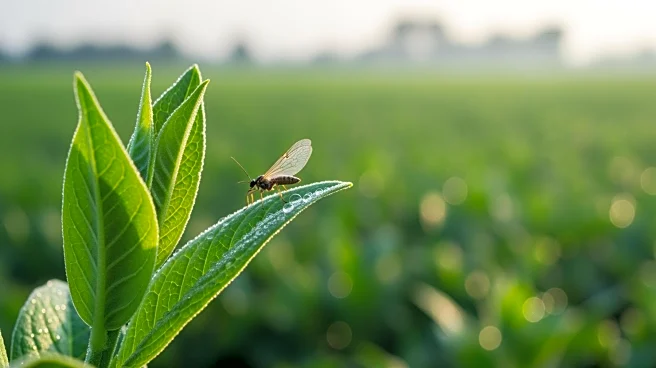Rapid Read • 8 min read
The national Braunvieh auction, held at the Afridome in Parys, saw a stud bull from the JC Braunvieh stud at Paarl fetch the highest price for the second consecutive year. The bull, JJH 22011, known as 'Willie', was purchased by Abie Rademeyer of Shalom Braunvieh for R85,000. Willie, noted for his rare bloodline and quality, was previously used in breeding heavy weaners. Additionally, Marelize Bezuidenhout of the Lizie-Dolla Braunvieh stud achieved remarkable sales with the most expensive pregnant stud cow and heifer, sold for R36,000 and R30,000 respectively. The auction featured 15 stud bulls sold at an average price of R49,333, highlighting the breed's ability to produce heavier weaning calves and its excellent crossbreeding capabilities.
AD
The auction underscores the growing demand and value of Braunvieh cattle, known for their superior breeding qualities and ability to produce heavier calves. This demand reflects the breed's economic significance in the livestock industry, offering breeders a competitive edge in producing high-quality meat. The successful sales of high-priced cattle indicate a robust market for Braunvieh, which could influence breeding strategies and market dynamics in the cattle industry. The breed's genetic advantages, such as meat tenderness, further enhance its appeal, potentially leading to increased investment and interest in Braunvieh cattle.
With the Braunvieh breed celebrating its 100th anniversary in South Africa next year, local breeders plan to commemorate the milestone, potentially boosting the breed's profile and market presence. The continued interest in Braunvieh cattle may lead to more auctions and sales, encouraging breeders to focus on enhancing genetic qualities and expanding their herds. Stakeholders in the livestock industry may also explore opportunities to capitalize on the breed's strengths, fostering innovation in breeding practices and market strategies.
The auction highlights the ethical considerations in livestock breeding, particularly the importance of genetic testing to ensure quality without compromising animal welfare. The absence of double-muscling genes in Braunvieh cattle, as confirmed by genomic tests, reflects responsible breeding practices that prioritize animal health and meat quality. This approach may set a precedent for other breeders, emphasizing the need for transparency and ethical standards in the industry.
AD
More Stories You Might Enjoy













